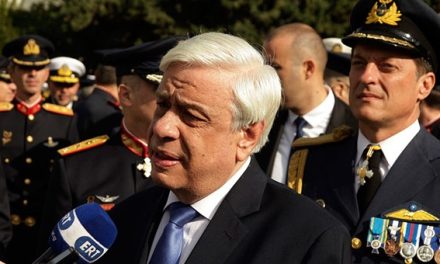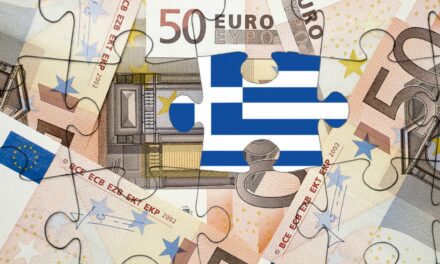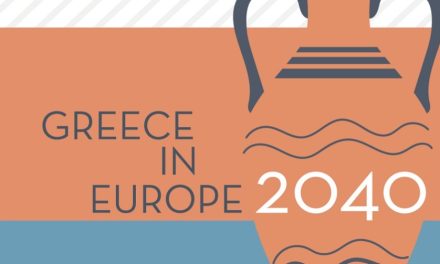Southeast European countries joining the EU (Source: CDRSEE)
Athens and Sofia have managed to significantly expand their bilateral ties since 1989: flourishing social and economic relations and a common membership to the EU and NATO have buttressed a good, working diplomatic relationship that had developed already in the 1970s and 1980s. A new report (‘Greek-Bulgarian relations: Present state and future challenges’) by the Hellenic Foundation for European and Foreign Policy (ELIAMEP) offers an overview of relations between the two countries for the period after the end of the Cold War.
Among the issues tackled in the report are diplomatic relations and bilateral problems and disputes, economic relations, energy and infrastructure questions as well as social attitudes and media representations. The auhors of the study, Yorgos Christidis, Ioannis Armakolas and Panagiotis Pachalidis, stress that relations between Greece and Bulgaria can be considered a Balkan ‘success story’ and a factor of stability for the wider region. In fact, such a good and stable relationship, as the one enjoyed between Greece and Bulgaria, cannot be found anywhere in the Balkans (with the possible exception of Albania and Kosovo, that however constitute an exception due to their ethnic affinity).
- Economic co-operation (trade, investments, energy and tourism) remains the most “dynamic element” of the bilateral relations. The Greek economic presence in Bulgaria has been reduced lately (for example in the financial sector with the sale of Greek owned banks), but overall it remains considerable. Bulgarian investments in Greece are at their infancy, but they are increasing (especially in northern Greece) and will probably continue to grow as Bulgaria’s GDP is steadily growing. Energy cooperation has added another important dimension to bilateral relations, despite the rather disappointing failure of the Burgas-Alexandroupolis pipeline project. The contribution of tourism to both economies cannot be stressed enough with thousands of Bulgarians spending their holidays in summer resorts in northern Greece and Greeks visiting winter resorts in south Bulgaria.
- Athens and Sofia have followed a fundamentally different policy vis-à-vis FYROM since the collapse of Yugoslavia. But in both countries there is a strong disapproval of the newly promoted nationalism in FYROM as well as serious concerns about the domestic and regional consequences of the process of ‘antiquisation’, which is seen as not only challenging history and cultural identity, but also the notion of “goodneighborliness”. In recent years, Greece and Bulgaria seem to be on the same page with regards to using their EU membership as a tool for moderating FYROM’s nationalist excesses.
- Despite the establishment of the High Level Cooperation Council in 2010, political dialogue between the two countries was, until recently, far below its “full potential”. The countries could potentially cooperate much closer on regional issues as well as in promoting their common interests in Brussels, on issues such as EU structural funds or migration pressures. It is encouraging that political dialogue between Athens and Sofia has intensified as of recent, as it was underlined by the third meeting of the High Level Cooperation Council in August 2016.
- Both countries are going through a phase of protracted crisis. In Bulgaria’s case, the crisis of course is much longer. Although the period of transition (that has preoccupied so much public debate) came to an end with Bulgaria’s accession into the EU in 2007, the country hasn’t managed to deal with the deep-seated socioeconomic problems, generated by the transition since 1990. Greece begins to suffer from issues, wellknown to Bulgaria, such as widespread contempt for the political system and the political elite, brain drain, a deepening demographic crisis, and growing trend of depopulation and abandonment of the countryside.
- History and geopolitics “keep alive” certain sensitivity in both countries vis-à-vis their powerful Eastern neighbor, Turkey, whose growing assertiveness and domestic authoritarianism and instability, makes them feel unease. The issue of the refugee flows coming through Turkey has underlined once more the need for closer cooperation between Bulgaria and Greece.
ELIAMEP’s South-East Europe Programme has for several years been researching Greece’s complex relations with Balkan neighbouring countries. Over the years, several projects have been implemented, bringing to light original data, as for example the attitudes of the Greek and neighbouring states’ public opinions, the formation and reproduction of negative stereotypes through media representations or the perceptions that opinion makers and media of the region hold about key developments in Greece. South-East Europe Programme is also associated with the scholarly journal Southeast European and Black Sea Studies, which is published by Taylor & Francis publishers in partnership with ELIAMEP.
See also: Ministry of Foreign Affairs – Greek-Bulgarian diplomatic relations; Greek-Bulgarian Relations in the Age of National Identity Formation












